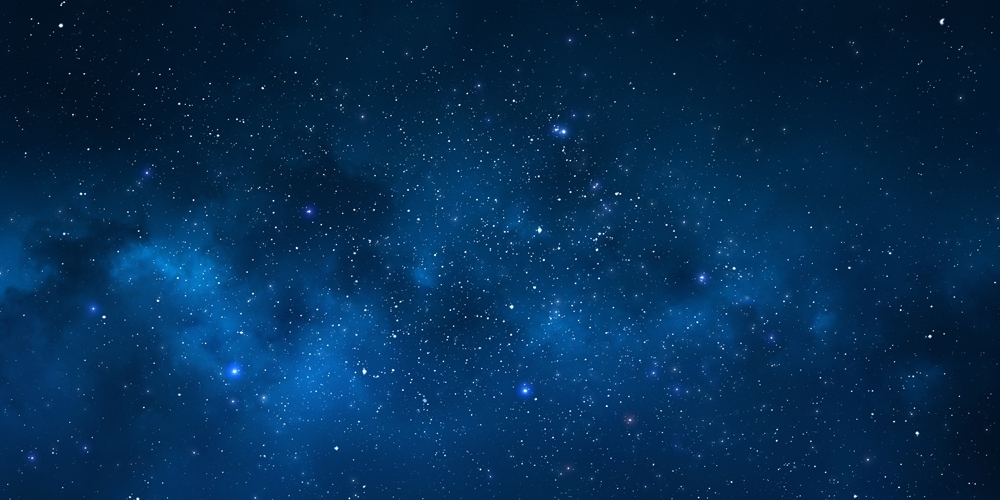
The apostle Paul told the believers in Corinth that without the resurrection of the dead their faith was “useless” (1 Cor. 15:14), which, from a Seventh-day Adventist perspective makes great sense, especially compared to the Standard Model of Death, the one that has our beloved dead already either “in glory” or in “eternal torment,” as the case may be.
Despite church tales about the dead, the instantaneous resurrection of billions of corpses, including those not together enough to be called even that, is going to be quite the event, isn’t it? If the resurrection of Jesus, only three days dead, His flesh gingerly wrapped in spices and preservatives, was a miracle—who can envision the supernatural physics requisite to restore to life someone whose body has been eaten by squid and fish themselves decomposed now for 2,500 years?
"No natural thing created itself; no natural thing came forth from itself."
Yet the re-creation of the natural world—which will unleash physical dimensions too deep for imaginations caged in by rationality to grasp—will be daisies compared to what the original creation required.
I’m not talking about God bringing forth various natural entities (i.e., galaxies, baboons, expanding space-time), but rather His bringing forth natural existence itself. No natural thing created itself; no natural thing came forth from itself. Thus nothing natural created the natural world, which is why theologian David Bentley Hart could write that “the doctrine that there is nothing apart from the physical order, and certainly nothing supernatural—is an incorrigibly incoherent concept, one that is ultimately indistinguishable from pure magical thinking.”
Hart has a point (he usually does). The cosmogonic quest for a single grand Theory of Everything, the one formula that explains all reality—from binary stars to bivalves—(even if found) would not get us out of the vicious circle of trying to explain the origin of the natural world by a natural explanation. That’s because whatever the formula—no matter how prime, even if deduced from the most brute of facts—will still be a physics formula, and physics no more created itself than my Toyota pickup created itself. Which means that a Theory of Everything, even if shaving away at the inner curve of the circle and getting us closer to the outer edge, still leaves us going around and around the same fruitless path, trying to explain how the natural world could have created itself.
One attempt to break out of this vicious cycle has been the theory, promulgated by the best and the brightest (and buttressed by mathematics, too), that the universe arose from nothing. The natural world did not create the natural world; instead, nothing created the natural world.
Of course, if one finds the notion of the natural world creating itself problematic, one might also find the notion of nothing creating the natural world ludicrously so. No need to despair, however. Because the universe-from-nothing hypothesis posits that the beginning points are not nothing, as in not-any-single-thing-at-all, but quantum fluctuations and false vacuum patches, which, however small, fleeting, elusive, are natural entities nonetheless. So by merely exchanging one natural state for another, the universe-from-nothing model still keeps us chasing our tails around the same hapless sphere. No matter how palpably indeterminate an event or state might be, it’s still infinitely far from non-existence, and thus infinitely less capable of being conjured up from nothing than my 100-pound German Shepherd could be conjured up from a magician’s hat.
The only logical way out of the circle is the divine one, the God-thing, not just any God but to quote (again) David Bentley Hart, the Creator, “the infinite wellspring of all that is, in whom (to use the language of the Christian scriptures) all things live and move and have their being . . . the inexhaustible source of all reality, the absolute upon which the contingent is always utterly dependent, the unity and simplicity that underlies and sustains the diversity of finite and composite things.”
Without the supernatural, we’re back to not only the physical impossibility of the world creating itself (though physical “impossibilities” have fooled us before), but the logical impossibility as well. How does something, anything, including the natural world, create itself? It doesn’t.
Because logic alone shows that it took astonishing supernatural power to create the natural world when there once wasn’t one, the revamping and refurbishing of that world shouldn’t require such a chasmal leap of faith on our part. The mere existence of the natural world, proof positive of the initial supernatural creation, makes the biblical promises of its supernatural re-creation (Isa. 65:17; 66: 22; 2 Peter 3:13; 1 Cor. 15: 52; Rev. 21:1; Rev. 20: 5, 6) a reasonable expectation, no matter how patiently we have to wait for its fulfillment.
Clifford Goldstein is editor of the Adult Sabbath School Bible Study Guide. His latest book, Baptizing the Devil: Evolution and the Seduction of Christianity, is available from Pacific Press.